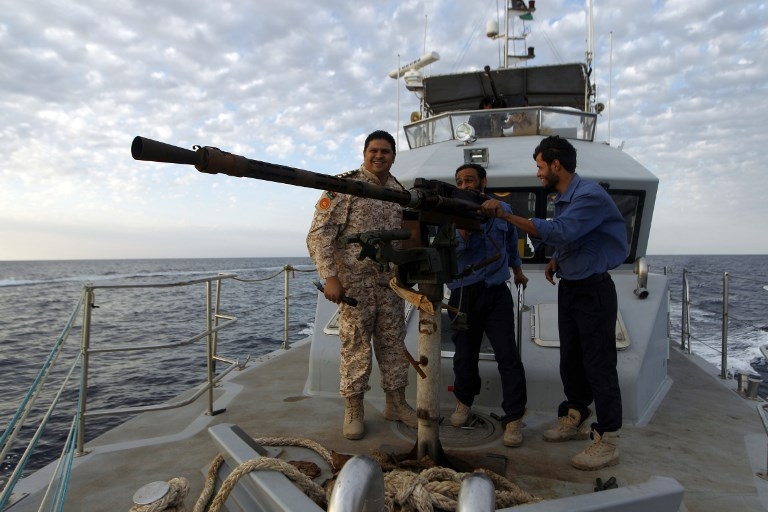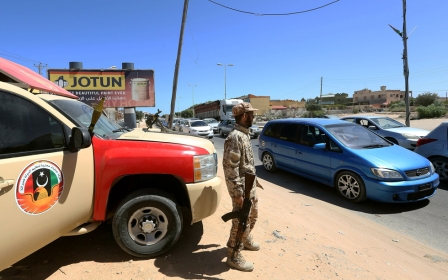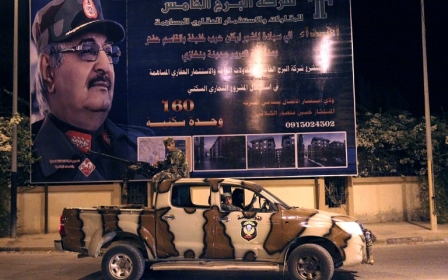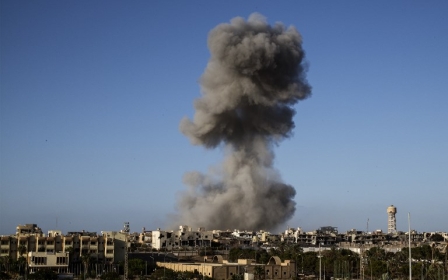Libya coastguard fires on tanker suspected of smuggling fuel

The Libyan coastguard opened fire on an oil tanker carrying contraband fuel, a spokesman for the navy told AFP on Saturday.
"The 'Goeast', flying the Comoran flag, was spotted three days ago heading for Abu Kamash and took on fuel via a pipeline on Thursday night, two kilometres from the coast," General Ayoub Qassem said.
Abu Kamash is the site of one of the oil-rich North African country's largest petrochemical complexes, near the Tunisian border about 170km west of Tripoli.
On Friday, the coastguard tried contacting the ship's crew. Receiving no response, it opened fire, hitting the vessel at least twice.
The coastguard fired at the ship with 30mm ammunition, resulting in significant damage to the fuel tanks and engine compartment, the Libyan Observer website said.
A video posted on Saturday on the coastguard's Facebook page shows shots being firing at the tanker, which starts to list heavily and capsize.
Liquid is seen pouring from the ship into the water and a man on the coastguard ship can be heard saying it is diesel.
The Goeast had loaded 9,000 tonnes of diesel and its tanks were "nearly full", according to the navy's Facebook page.
It was not known how many crew members were on board or what their nationalities were.
"The coastguard wanted to send a clear message to traffickers ... to smuggling vessels ... to all those who dare to touch [the resources of] the Libyan people in the future," the navy said.
Libya has been plagued by violent unrest since the ouster and killing of long-time leader Muammar Gaddafi in a NATO-backed 2011 revolution.
The North African country has become a haven for smugglers, including of petrochemicals.
Libyan fuel prices are among the lowest in the world, tempting smugglers with the prospect of large profits.
With estimated oil reserves of 48 billion barrels, Libya used to produce 1.6 million barrels per day before the 2011 uprising.
Middle East Eye propose une couverture et une analyse indépendantes et incomparables du Moyen-Orient, de l’Afrique du Nord et d’autres régions du monde. Pour en savoir plus sur la reprise de ce contenu et les frais qui s’appliquent, veuillez remplir ce formulaire [en anglais]. Pour en savoir plus sur MEE, cliquez ici [en anglais].




